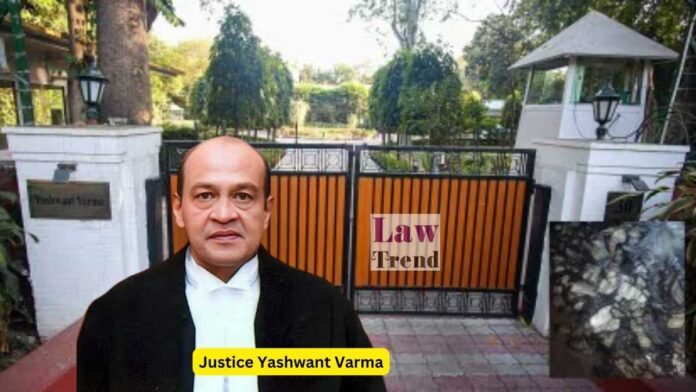In a strongly worded rebuttal to the Supreme Court’s internal inquiry findings, Justice Yashwant Varma has refused to resign or opt for voluntary retirement despite being found liable for misconduct by an in-house committee. In a letter dated May 6 to then Chief Justice of India (CJI) Sanjiv Khanna, Justice Varma criticized the process as “fundamentally unjust” and in violation of principles of natural justice.
The controversy emerged on March 14, when a fire broke out at the outhouse of Justice Varma’s official residence in Delhi. Firefighters reportedly discovered charred currency notes stuffed in sacks, prompting the Chief Justice of the Delhi High Court to escalate the matter to the CJI.
On March 22, a three-judge in-house inquiry panel was constituted by then CJI Khanna, comprising Justice Sheel Nagu (then Chief Justice of Punjab & Haryana), Justice GS Sandhawalia (then Chief Justice of Himachal Pradesh), and Justice Anu Sivaraman (Karnataka High Court). The committee submitted its findings on May 3, concluding that Justice Varma was liable for misconduct.
Within hours of receiving the committee’s report, Justice Varma was served with a May 4 letter from CJI Khanna, advising him to resign or take voluntary retirement within 48 hours. The letter warned that failure to comply would result in the report being forwarded to the President and Prime Minister for further action.
In response, Justice Varma submitted a detailed letter on May 6, expressing deep concern over the process. “To accept such advice would imply my acquiescence to a process and outcome that I respectfully consider to be fundamentally unjust and requiring reconsideration and review,” he wrote.
He further argued, “A decision such as the one your letter advises me to take necessarily entails due deliberation and thought which cannot and ought not to be restricted to a 48-hour window.”
Justice Varma underscored that he had not been granted a personal hearing or informed of the committee’s preliminary views during the inquiry. “I was never afforded a meaningful opportunity to address the specific allegations or case ultimately tabled in the Report,” he stated.
Procedural Fairness and Precedent
In his letter, Justice Varma invoked the precedent of Justice Soumitra Sen, a former judge of the Calcutta High Court, who was allowed sufficient time to respond and was granted a personal hearing by the then CJI and senior judges of the Supreme Court before further action was taken.
Justice Varma argued that, unlike in Justice Sen’s case, he had not been provided any such opportunity. He criticized the process as a deviation from past practice and requested that confidentiality be maintained in line with established norms.
“I am confident that had your Lordship in fact reviewed these documents, you would have been equally distraught over the fundamental unfairness of the procedure adopted,” Justice Varma wrote.
Following the report, Justice Varma was divested of judicial work and transferred to his parent High Court in Allahabad. The matter soon took on political dimensions, with Union Parliamentary Affairs Minister Kiren Rijiju confirming outreach to the Opposition for support in initiating removal proceedings during the upcoming Monsoon Session of Parliament.
Law Minister Arjun Ram Meghwal is expected to introduce a motion seeking Justice Varma’s removal. Meanwhile, Vice President and Rajya Sabha Chairman Jagdeep Dhankhar questioned the legal standing of the in-house inquiry mechanism, calling it “inconsequential” and advocating a formal criminal investigation instead.
In his concluding statements, Justice Varma wrote, “It has therefore become imperative for me to place on record my pain, anguish and profound concerns about the manner in which I have been dealt with,” while reserving his right to take “such action as may be necessary to protect my honour and dignity.”
He also reiterated his plea for a fair opportunity to be heard and insisted that the matter deserved “reconsideration and review” before any irreversible steps were taken.




